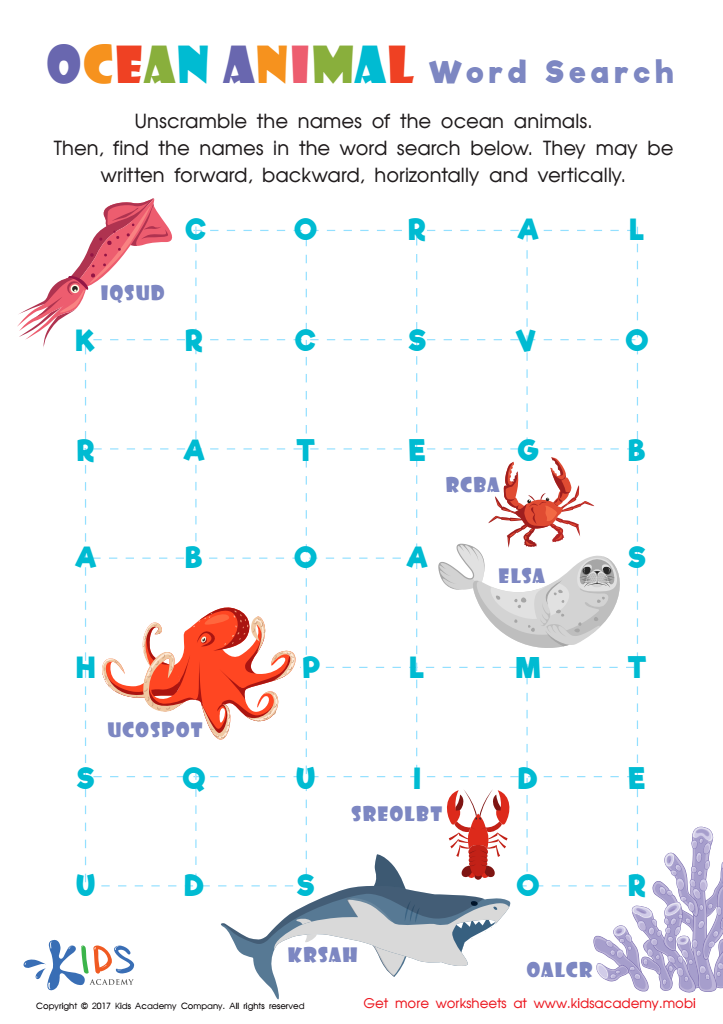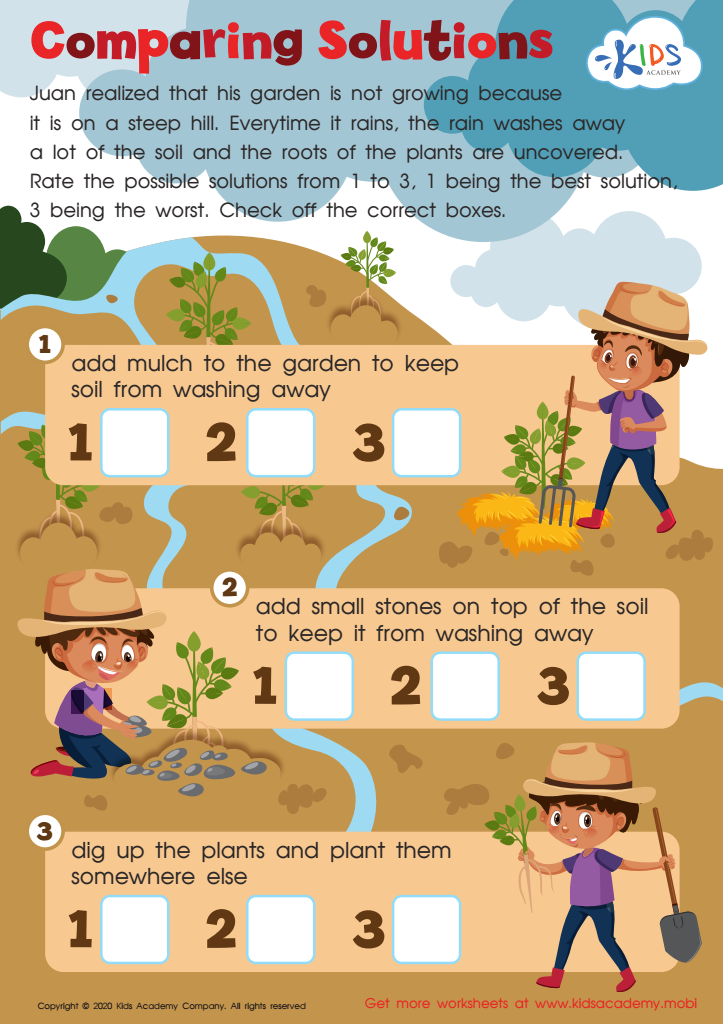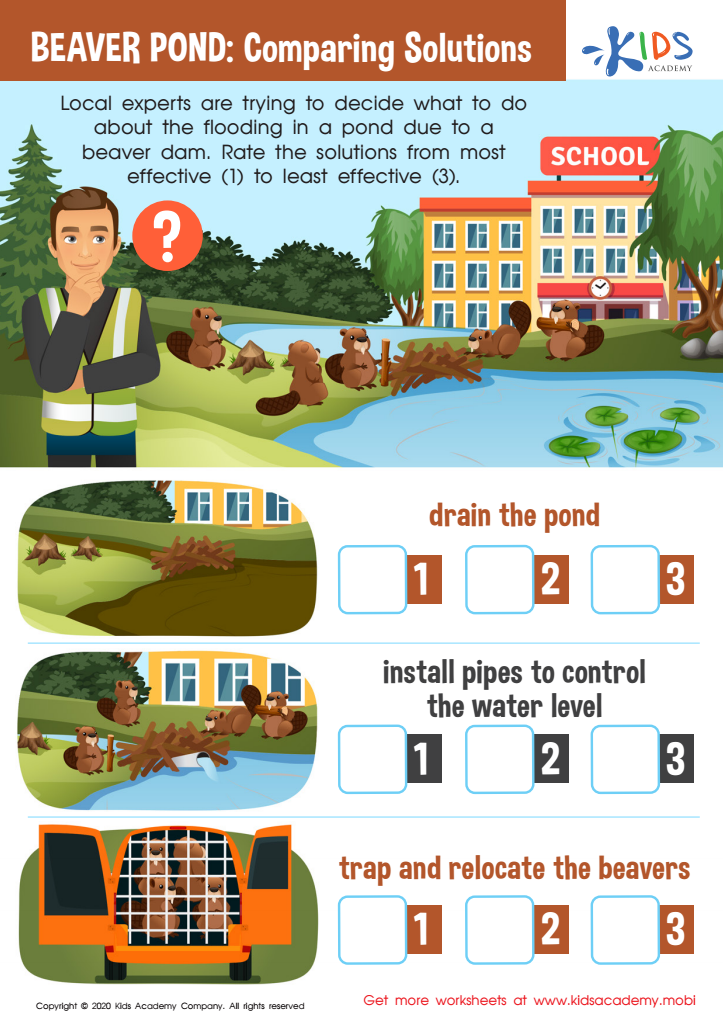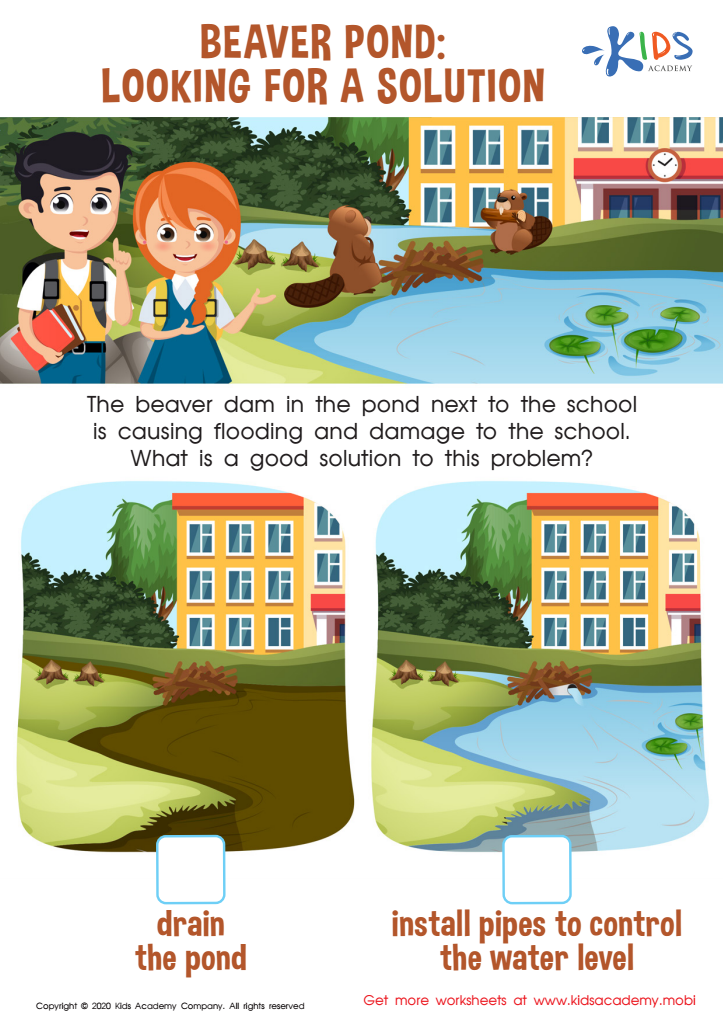Problem-Solving Skills Life Science Worksheets for Ages 4-8
4 filtered results
-
From - To
Unlock your child's potential with engaging Problem-Solving Skills Life Science Worksheets designed for ages 4-8. These expertly crafted worksheets by Kids Academy merge learning with fun through captivating activities that sharpen critical thinking and reasoning skills. Each worksheet presents real-life scenarios, promoting hands-on exploration of essential life science concepts. Perfect for early learners, our resources nurture curiosity and foster a love for science, while improving problem-solving abilities. With topics ranging from organisms to ecosystems, these worksheets provide a strong foundation for future scientific understanding. Start your child’s educational journey today with interactive and enjoyable learning experiences!


Ocean Animals Word Search Printable


Comparing Solutions Worksheet


Beaver Pond: Comparing Solutions Worksheet


Beaver Pond: Looking for a Solution Worksheet
Problem-solving skills in life science for children ages 4-8 hold significant value, influencing both immediate learning outcomes and long-term development. Early cultivation of these skills enables young minds to think critically, fostering curiosity and a passion for discovery. At this developmental stage, children are naturally inquisitive and keen to explore their environment. Introducing them to life science through problem-solving activities caters to this innate curiosity, making learning engaging and fun.
By solving simple life science problems, children learn to ask questions, make observations, and develop hypotheses. These processes lay the groundwork for critical thinking and analytical skills—essential components for academic success and everyday challenges. For example, understanding why plants need sunlight to grow or observing the life cycles of insects encourages kids to think logically, boosting cognitive development and enhancing attention to detail.
Moreover, early exposure to problem-solving in life science supports emotional and social growth. Working collaboratively to solve scientific puzzles cultivates teamwork, communication skills, and patience. Children learn to respect diverse viewpoints, negotiate, and arrive at solutions collectively.
Ultimately, investing in problem-solving skills in life science for young children empowers them with the tools to understand the world more fully, builds foundational skills for future learning, and encourages them to become thoughtful, informed individuals.
 Assign to My Students
Assign to My Students
















